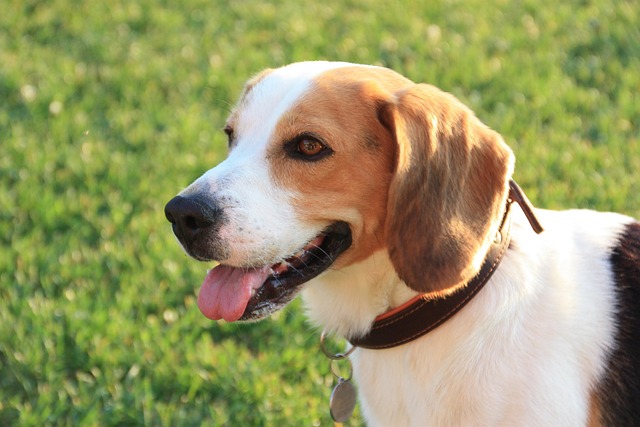
When will Samoyed have his teeth changed
When you look down at the Samoyed by your feet, it rubs your palm with its wet nose, revealing pink gums and tiny teeth.
When a fluffy puppy first wags its tail into your life, its wet eyes full of dependence and trust, you become the guardian of its life at that moment. The first line of defense for safeguarding a puppy's healthy growth is scientifically and rationally vaccinating it. But how old should a puppy be to get vaccinated? Behind this seemingly simple question lies a complex answer related to life and health. Every choice of timing is like drawing a safety blueprint against diseases for the puppy.
A newborn puppy's immune system is like a fragile tower of building blocks just constructed. In the first few weeks after birth, they mainly rely on maternal antibodies obtained from the mother dog to protect themselves. Maternal antibodies are immunoglobulins transmitted from the mother dog to the puppy through the placenta and colostrum, like a temporary suit of armor for the puppy, which can resist the invasion of external pathogens for a certain period. However, this "armor" is not eternally strong. As the puppy grows, maternal antibodies gradually decline. Generally, maternal antibody levels are relatively high at 2-3 weeks of age, and by 6-8 weeks of age, the concentration of maternal antibodies begins to drop to a level where it can no longer provide effective protection.
Common puppy vaccines are mainly divided into core vaccines and non-core vaccines. Core vaccines are essential for every puppy, including canine distemper, parvovirus, infectious canine hepatitis, and rabies vaccines. The canine distemper virus is like a cunning enemy that can attack a puppy's respiratory, digestive, and nervous systems. Infected puppies may experience symptoms such as high fever, coughing, vomiting, and convulsions, with a very high mortality rate. The canine parvovirus is like a ruthless killer that specifically damages a puppy's intestinal and myocardial cells, causing severe diarrhea and bloody stools, and many puppies die of dehydration and exhaustion as a result. Infectious canine hepatitis can damage the liver and other internal organs. Rabies is a fatal zoonotic disease, and once it breaks out, the mortality rate is almost 100%. Non-core vaccines are selectively administered according to the puppy's living environment and infection risk, such as the kennel cough vaccine.
Based on the decline pattern of maternal antibodies in puppies and the characteristics of vaccines, most veterinarians recommend that puppies receive their first vaccination at 6-8 weeks of age. At this stage, the maternal antibodies in the puppy's body have decreased to a level that does not interfere with the vaccine's effectiveness. Vaccinating at this time is like timely repairing the gradually weakening defensive wall. The first multi-component vaccine can prevent multiple diseases at the same time, stimulating the puppy's own immune system to produce memory cells. When the puppy truly encounters viruses, these memory cells can quickly react to resist the diseases.

Two to four weeks after the first vaccination, a second vaccination is required. This is like reinforcing the defense line, further stimulating the puppy's immune system to enhance the immune response and bring antibody levels to a higher and more stable state. After that, a third vaccination is usually required at 12-16 weeks of age to ensure that the puppy obtains comprehensive and lasting immune protection. Rabies vaccines are generally administered when the puppy is over 3 months old because the puppy's body is relatively mature at this stage and can better cope with the immune response of the rabies vaccine.
In reality, there are distressing cases where puppies are put in danger due to missing the optimal vaccination time. There was once a 7-week-old golden retriever puppy whose owner was too busy with work and planned to vaccinate it intensively after it was 3 months old. However, during the waiting period, the puppy unfortunately contracted canine parvovirus. In just a few days, the originally lively little guy became dying, and despite the owner spending a lot of money on full treatment, its life could not be saved in the end. This tragedy warns every pet owner that scientifically grasping the vaccination time is protecting the puppy's life.
In addition to age, the puppy's health status is also an important factor in determining whether it can be vaccinated. Before vaccination, veterinarians will carefully check the puppy's body temperature, mental state, diet, and defecation. If the puppy shows symptoms such as fever, coughing, or diarrhea, even if it is only slightly uncomfortable, the vaccination needs to be postponed because the puppy's immune system is in a stress state when it is sick. Vaccinating at this time may not only fail to produce an effective immune response but also aggravate the condition.
When you take your puppy to a pet hospital and watch the tiny needle pierce its skin, you may feel distressed. But please believe that these vaccines are safety passes to protect its life journey for the next ten-odd years. Every vaccination from 6-8 weeks of age is an important cornerstone of the health fortress you build for it. In this world full of bacteria and viruses, scientific vaccination allows puppies to explore this beautiful world with health and vitality and share countless warm and happy moments with you.

When you look down at the Samoyed by your feet, it rubs your palm with its wet nose, revealing pink gums and tiny teeth.

When you gently stroke the fluffy, soft white fur of a Samoyed and feel the smoothness under your fingertips, it's like touching a warm cloud

The clear and bright eyes of dogs are an important window for establishing emotional connections with us. When this window is covered with haze, the owner is often distressed and anxious.

When the dog that used to be gentle and cute, wagging its tail to greet you, suddenly bares sharp teeth, emits low growls, or even makes lunging bites,

When you gently stroke a Schnauzer's fluffy head, its ears—like fairy wings—flick softly, as if whispering boundless joy. However,

As pet owners,we always want to give our dogs the best care,and deworming is an important part of daily care.The question of"whether to feed deworming medicine to dogs without parasites"involves health considerations and emotional care.